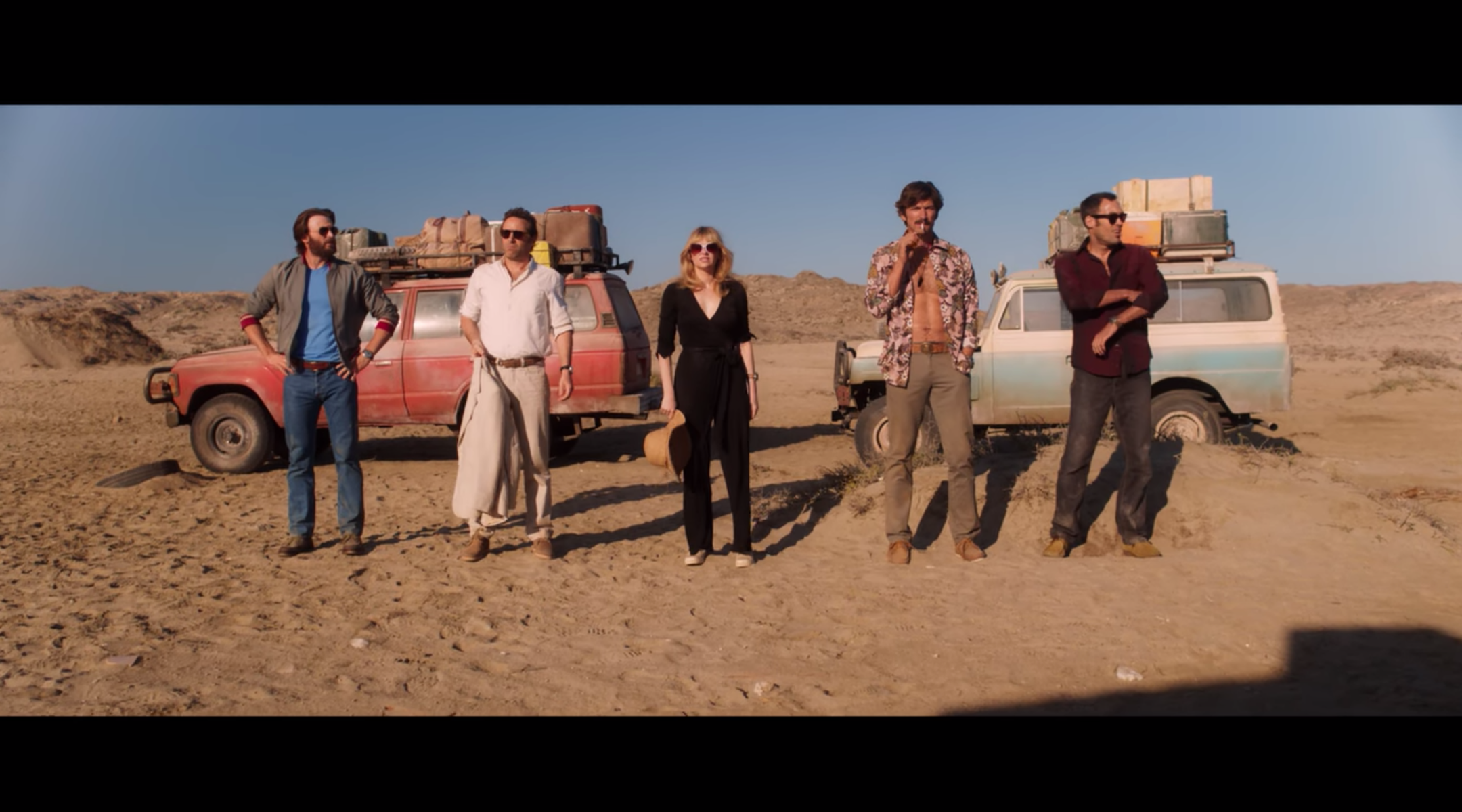(JTA) — Out of all of the unrealistic scenes in “The Red Sea Diving Resort,” the most absurd one might be when Ben Kingsley, playing a supposedly gritty Mossad agent, shows up in the desert wearing a suit and a jaunty ascot around his neck.
“The Red Sea Diving Resort” — about how a crew of Israeli spies smuggled thousands of Ethiopian Jewish refugees out of Sudan while running a beachfront hotel — could have been a good movie. But at a time when Israeli commando thrillers are the new fad (“7 Days in Entebbe,” “Fauda” and “When Heroes Fly,” to name a few), “The Red Sea Diving Resort” turned a genuinely captivating story into a “meh.”
The Israeli characters don’t ring true at all. And we don’t see nearly as much of the film’s moral center — the actual Ethiopians — as we should.
The movie, available on Netflix, tells the true story of a daring 1980s Israeli rescue mission, Operation Brothers. A group of undercover Mossad agents leased a deserted resort in Sudan called the Arous Holiday Village and funneled Ethiopian Jewish refugees through it and onto Israel naval boats. The agents did run the hotel, all while saving approximately 8,000 people, according to Time magazine.
At least one of the movie’s most dramatic scenes actually happened: As the Israeli agents were loading refugees onto boats from the beach, a convoy of Sudanese soldiers began shooting at them, thinking they were smugglers, according to Haaretz. The shooting stopped when — as in the movie — one of the agents shouted at the soldiers to stop firing on tourists out for night diving.
It’s thrilling stuff. The shame is that other parts of “Red Sea Diving Resort” feel predictable and inauthentic — namely, most of the scenes involving the Israelis, who mostly speak in American accents and use mostly American slang like “no shit” or “what a dump.” Kingsley, who’s also supposed to be Israeli, speaks in a British accent and uses British words, like “chaps.”
He also dresses way more formally than any self-respecting Israeli in the 1980s did. Israel is famous for its informal standards — open collars, untucked shirts and the like, even at weddings and funerals. Kingsley is only on screen wearing a suit or a silk bathrobe.
Viewers who haven’t lived in Israel might not notice those things. But they probably will notice the stream of cliche lines. At one point, there’s the standard, heated argument between the sensible veteran spy and the young, idealistic renegade, Ari (played by Chris Evans, of “Captain America” fame). At another point, trying to convince a spy to join the mission, Ari says, “If we don’t do something, no one will.” Maybe true, but still: groan.
The movie hits other unsurprising notes, too. Of course Ari has a marriage that’s falling apart. Of course he has a reticent friend who, “Blues Brothers”-style, he has to convince to rejoin the team. Of course Ari keeps getting in trouble for breaking the rules, but breaks them anyway. Of course the bad guy is a caricature of a ruthless army officer from a dictatorial regime. Of course the movie climaxes with a plane taking off from a runway as it’s pursued by Sudanese armored vehicles (cough, “Argo,” cough). Of course the Americans, in the end, help save the day.
Meanwhile, the audience sees too little of a story they have probably never known: that of the fraught journey, on foot, from Ethiopian villages to a Sudanese refugee camp to Israel. The story is about the plight of Ethiopian Jewish refugees, but they’re almost tangential to the movie.
We only really get to know one of them, played by Michael Kenneth Williams (“The Wire”), and he is also largely reduced to cliche lines. We barely learn any of his story, or anything about the lives of the people who these agents are trying to save. Instead of playing a montage of hotel life and spy intrigue, to the sounds of “Hungry Like the Wolf,” the movie could have shown us some of life in the village, or life in the refugee camp.
Imagine a movie centered around the refugees, telling the tale of a small, ancient community forced during government unrest to trek hundreds of miles through the desert and board boats to a land they have dreamed of but never known.
Obviously, shots of a shirtless Chris Evans on the beach are more glamorous than nervous nighttime conversations in Amharic. But a movie about Ethiopian Jews that barely focuses on Ethiopian Jews feels like a missed opportunity.
At one point, wounded in a stabbing we never see, Williams’ character tells the Mossad agents, “This is not a mission for me. This is my life.”
If only we’d seen more of that life in the movie.
JTA has documented Jewish history in real-time for over a century. Keep our journalism strong by joining us in supporting independent, award-winning reporting.






